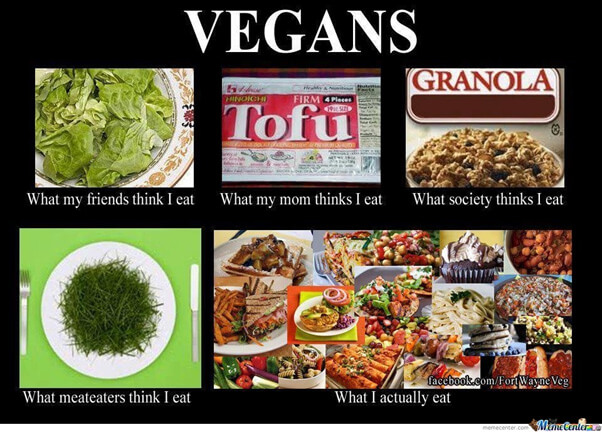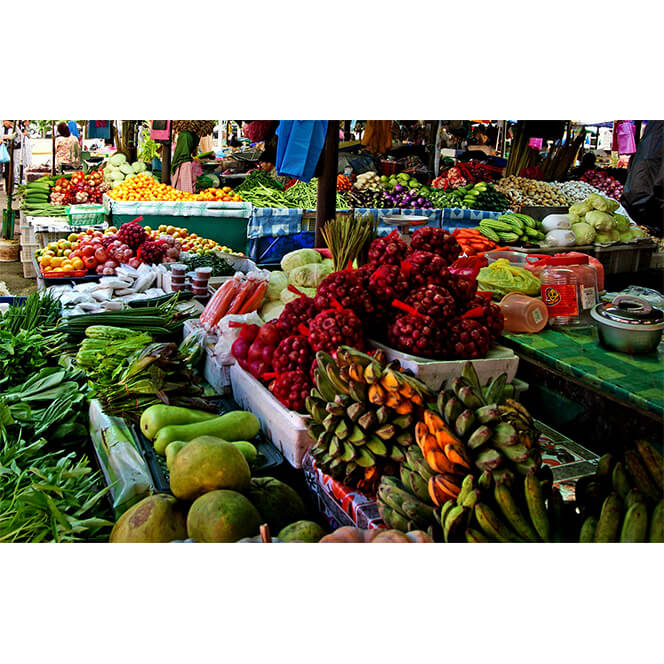Being vegan seems to not only be on the rise in recent years but is almost becoming a fashion trend with more and more people moving towards a vegan lifestyle, or at least a healthier diet. In 2014 there were 150,000 vegans in the UK whereas in 2018 there were 600,000 (Vegan Society, 2019). I have no doubt every reader of this article will know at least one vegan. This increase is not surprising given how ‘easy’ it is nowadays to become vegan. At surface level, the transition to adopting a vegan lifestyle for the most part seems much easier with vegan products – including food and drink, cosmetics, beauty products, and clothing – becoming much more accessible and affordable responding to the consumer rise in demand for vegan lifestyles. Similarly, most people know what being vegan means, or at least have heard of the term, although they may not know the ways in which one might practice veganism, hence the common types of questions posed to those living a vegan lifestyle that try ascertaining the level of strictness adopted.
The definition used by the Vegan Society is that “veganism is a way of living which seeks to exclude, as far as possible and practicable, all forms of exploitation of, and, cruelty to, animals for food, clothing or any other purpose” (Vegan Society, 2019). Whilst we can see here that the definition is fairly clear and straight forward in that veganism is the exclusion of animal-based products from one’s life, there is however a great deal of ambiguity within this definition as to how that way of life is practiced. “As far as possible and practicable” suggests degrees of veganism that one determines for themselves, and, perhaps more importantly, determined by others for the vegan. By way of example, some vegans may exclude honey from their diet/lifestyle due to the questionable methods of production and potentiality for animal exploitation, whereas other vegans may see honey as a by-product of such methods which would not conflict with their vegan principles or ethics. In effect, they are still vegan, but they eat honey. These discrepancies between vegan practices provide, for want of a better phrase, a ‘grey area’ that reveals the varying degrees to which veganism can be practised. It is this ambiguity that reinforces the sociological and philosophical concept of becoming; the notion that one never reaches a state of absolutism but rather is always striving for it. Drawing upon Goffman’s dramaturgy (1959; 1963) approach to social interaction, we can see the identity work and performances that vegan social actors engage in on a regular basis to maintain their vegan identities.
To illustrate one’s vegan-becoming, answering such questions as “how strict are you as a vegan?” or “do you think you’ll ever eat meat again?” demonstrate the identity work performed by vegans to present the degree of their veganism. Even though the vegan might know the extent of their own veganism, they still find themselves explaining, justifying, and defending their vegan identity. But why is this a bad thing? Surely non-vegans are just curious about this diet and lifestyle choice and want to enquire further. Most of the time, I hope this is indeed the case, but unfortunately the dominant discourses of the meat and dairy industries on a macro scale have damaging effects on the micro social world leaving vegans to engage in significant identity work to preserve their moral and ethical standpoints of veganism. From this, we can see how one does not become a vegan, but rather is always becoming-vegan, maintaining a never-ending performance of veganism and fighting from a marginalised position against the dominant discourses of the meat/dairy industries.
The fight I am referring to is not a political fight that we may see through social movements or national campaigns on a macro scale. Rather, it is within the site of the everyday, the mundane, and the routine where we see vegans fighting to perform and maintain, defend and extend their vegan lifestyles. Checking ingredients or manufacturing labels for unexpected animal products, confirming with the waiter if the vegetarian option is vegan-friendly, explaining to family, friends, colleagues, sometimes even strangers, why they are vegan now and what they eat as a result are all every day occurrences for many vegans. There are a number of sociological studies in recent years that have explored vegetarians’ and vegans’ everyday life experiences in relation to these identities (see, Beardsworth et al., 1992; Larsson et al., 2003; Cole and Morgan, 2011) and such studies have found that vegans are constantly positioning and repositioning themselves in relation to the dominant discourses of meat/dairy eating, not to mention the social structures of capitalism and patriarchy (Adams, 1990). These dominant discourses permeate throughout the West and are deeply embedded within the macro and micro social and political structures of society shaping the way we view animals and other species. As a result, those who adopt and/or maintain a lifestyle that opposes these dominant discourses and align with another, (e.g. veganism) become labelled as deviant and someone who avoids certain foods, products, etc. Even in the definition of veganism from the Vegan Society frames it as the exclusion of certain products as opposed to the expanding of one’s food consumption choices to include a much wider range of nutrients and plant-based foods.
The meme below conveys an accurate message as to how veganism is predominantly perceived in the West and we often see satirical or sarcastic retorts from vegans and allies as a way of challenging these myths of veganism and its practices. Indeed, since the site of the everyday is where vegans find themselves responding to the most criticism and challenges, so too should the everyday be the site of resistance for vegans. By critically engaging in these informal and archetypical conversations around vegan practices, ethics, and experiences, vegans are challenging these discourses and providing a new lens by which to view our social world. Finally, we would do well to remember that we are all becoming-vegan – meat-eaters or not – it is, after all, only a matter of degree.

References:
Adams, C. (1990) The Sexual Politics of Meat: A Feminist-Vegetarian Critical Theory. London: Bloomsbury.
Beardsworth, A., and Kiel, T. (1992) ‘The vegetarian option: varieties, conversions, motives and careers’ in The Sociological Review pp. 253-293.
Cole, M., and Morgan, K. (2011) ‘Vegaphobia: derogatory discourses of veganism and the reproduction of speciesism in UK national newspapers’ in The British Journal of Sociology 62(1) pp. 134-153.
Goffman, E. (1959) The Presentation of Self in Everyday life. Penguin Books: London.
Goffman, E. (1963) Stigma: Notes on the Management of Spoiled Identities. Penguin Books: New Jersey.
Larsson et al. (2003) ‘Veganism as status passage: The process of becoming a vegan among youths in Sweden’ in Appetite 41 pp. 61-67.
The Vegan Society (2019) Definition of veganism. [ONLINE] Available at: https://www.vegansociety.com/go-vegan/definition-veganism [Accessed 07 July 2019].


